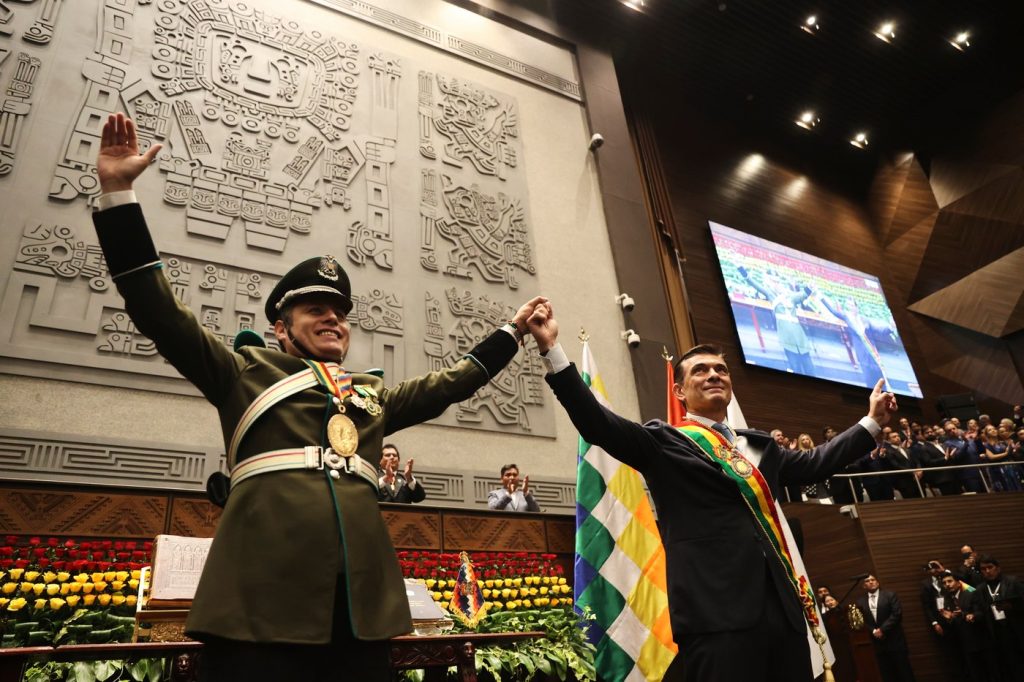LA PAZ, Bolivia (AP) — On Saturday, conservative politician Rodrigo Paz was sworn in as Bolivia's new president, marking a significant shift for the Andean nation after nearly two decades of one-party rule. At the inauguration, which took place in La Paz, Paz took the oath of office before legislators and foreign dignitaries, raising his right hand before a Bible and a cross. "God, country, and family, I do swear," he stated, upon receiving the presidential sash and medals.
Paz, at 58 years old, assumes leadership amid widespread anticipation among Bolivians who are grappling with severe fuel shortages and skyrocketing food prices, symptoms of the country's worst economic crisis in 40 years. His victory in the presidential runoff last month came as a surprise, defeating the more prominent right-wing candidate, former President Jorge "Tuto" Quiroga.
Inheriting a faltering economy after 20 years under the administration of the Movement Toward Socialism (MAS) party, which was founded by the charismatic former president Evo Morales, Paz faces substantial challenges. The MAS party saw its peak during the commodity boom of the early 2000s; however, with the decline of natural gas exports and the collapse of its statist economic policies, including generous subsidies and a fixed exchange rate, Paz has limited time to deliver on his promises for economic recovery.
With U.S. dollars in short supply and ongoing fuel shortages, the Bolivian electorate cast their votes for Paz in hopes that he would steer the country out of economic turmoil. Promising major reforms, Paz advocates for a gradual approach in contrast to Quiroga, who urged for an International Monetary Fund (IMF) bailout and a fast-tracked fiscal adjustment program.
The inauguration was attended by regional leaders, including Argentina's President Javier Milei, Chile's President Gabriel Boric, Ecuador's President Daniel Noboa, Uruguay's President Yamandé Orsi, and Paraguay's President Santiago Peña. This moment signifies a potential shift in Bolivia's international relations, with Paz moving away from the ALBA bloc—previously aligned with Cuba, Nicaragua, and Venezuela—and towards a closer partnership with the United States, which had strained diplomatic ties following the expulsion of the U.S. ambassador in 2008 during Morales' tenure.
Paz has already engaged with international financial institutions to explore economic assistance programs. He reached an initial agreement with the Andean Development Corporation for a $3.1 billion loan aimed at facilitating economic recovery over the coming years. Michael Shifter, an expert from the Inter-American Dialogue, emphasized that after two decades of leftist leadership, Paz has the goodwill of foreign investors and the international community at his disposal. However, he warned that Paz may risk losing political capital if he fails to act decisively or if his policies do not bring about the expected economic improvements.
In terms of security, Paz announced his government's intent to collaborate with all international organizations, including the U.S. Drug Enforcement Administration, which had been expelled from Bolivia in late 2008. Building a stable political alliance will be essential for his administration, considering his Christian Democratic Party currently controls only 39% of the 166 seats in the Legislative Assembly.











